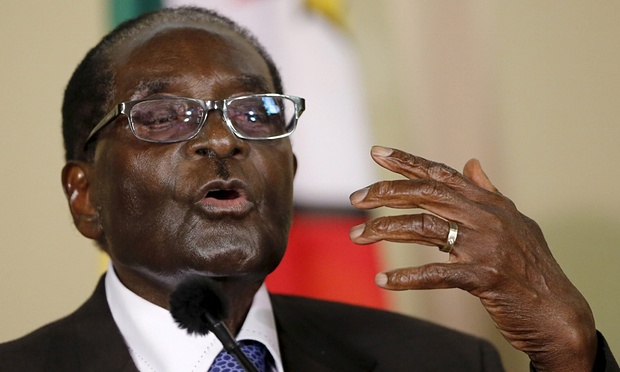

PRESIDENT Robert Mugabe’s latest Cabinet reshuffle undermined Unity Accord between PF Zapu and Zanu PF after he handed the Home Affairs portfolio back to his original party, analysts said yesterday.
BY SILAS NKALA
Mugabe on Monday reassigned long serving Home Affairs minister Kembo Mohadi, a former PF Zapu official to State Security in his second Cabinet reshuffle inside seven months.
The Home Affairs portfolio headed by the likes of late Vice-President John Nkomo and Dumiso Dabengwa was a preserve of PF Zapu members since the peace accord to end the Gukuruhundi atrocities in 1987.
Mugabe, last December was criticised for appointing Phelekezela Mphoko to take the Vice-Presidency slot usually reserved for PF Zapu members as he succeeded Nkomo.
Mphoko was originally a PF Zapu member, but he was accused of deserting the party at the height of the liberation struggle while posted in Mozambique to join Zanu PF.
Mugabe was also criticised for abolishing the Zanu PF chairperson post at the last congress as he demoted Simon Khaya Moyo, who is now the party’s spokesperson.
Paul Siwela, a 2002 presidential candidate now in self-imposed exile after escaping a treason trial, said the Unity Accord was always prone to manipulation by the 91-year-old leader.
- Chamisa under fire over US$120K donation
- Mavhunga puts DeMbare into Chibuku quarterfinals
- Pension funds bet on Cabora Bassa oilfields
- Councils defy govt fire tender directive
Keep Reading
“That agreement confirmed the defeat of Joshua Nkomo and PF Zapu by Robert Mugabe and Zanu PF,” Siwela said.
“That defeat was effected by PF Zapu losing its leadership and surrendering all political power to Zanu PF in return for nothing.
“They further lost their identity by accepting the already-existing Zanu PF name though foolishly agreeing that they had been accommodated by Zanu PF.”
He said PF Zapu policies and programmes were thrown into the dust bin including political friends.
“Zapu surrendered its political base and any meaningful resource without compensation in the purported political power sharing arrangement,” he said.
“The agreement further exonerates Zanu PF from genocide and makes PF Zapu assume the blame.”
Siwela said PF Zapu members got a raw deal from the very beginning.
“The ascendency to political leadership in both Zanu PF and the government for former members of PF Zapu right from the beginning was based on the whim of President Robert Mugabe and not the agreement,” he said. “Current and future developments would always be based on Zanu PF ideology.”
The former Zapu Federal Party leader said Mugabe valued the agreement only in so far as it confirmed the defeat of late Vice-President Joshua Nkomo and PF Zapu.
“I note that Mohadi becomes the first Ndebele person to be appointed State Security minister,” Siwela said. “This does not surprise anyone given the internecine succession wars in Zanu PF.
“It became not only prudent, but very imperative for Mugabe to appoint a very loyal and honest person without divided interest to monitor the unfolding ugly situation which would ultimately destroy Zanu PF. Mohadi became the most suitable person for the office.”
Dabengwa and other top officials pulled out of Zanu PF in 2008 citing lack of respect for the Unity Accord.
His Zapu party insists that those who remain in Zanu PF do not represent the former liberation movement.
Bulawayo-based political commentator Methuseli Moyo said there was no longer a substantive Unity Accord, but Zanu PF wanted to pretend the deal still subsisted.
“What is important now for Mugabe is managing succession politics in his party than any other pressing matter,” Moyo said. “In fact, the Unity Accord had no terms, but just traditions which Mugabe chose to abandon to deal with current dynamics in the party.” South Africa-based political commentator Ezra Maplanka said the Unity Accord had lost relevance. “I personally feel this accord has lost relevance if ever it was relevant to start with,” he said. “It failed and it still fails to show its meaning to the lives of ordinary Zimbabweans especially those from the south-western part of the country. “It only managed to portray itself as a mere political arrangement for the former liberators to bring a common ground to settle old scores and work together on that level.” The Unity Accord only specified Zanu PF and the government having two Vice-Presidents, one from PF Zapu and the other from Zanu PF. Its signing is still celebrated on December 22 annually.










